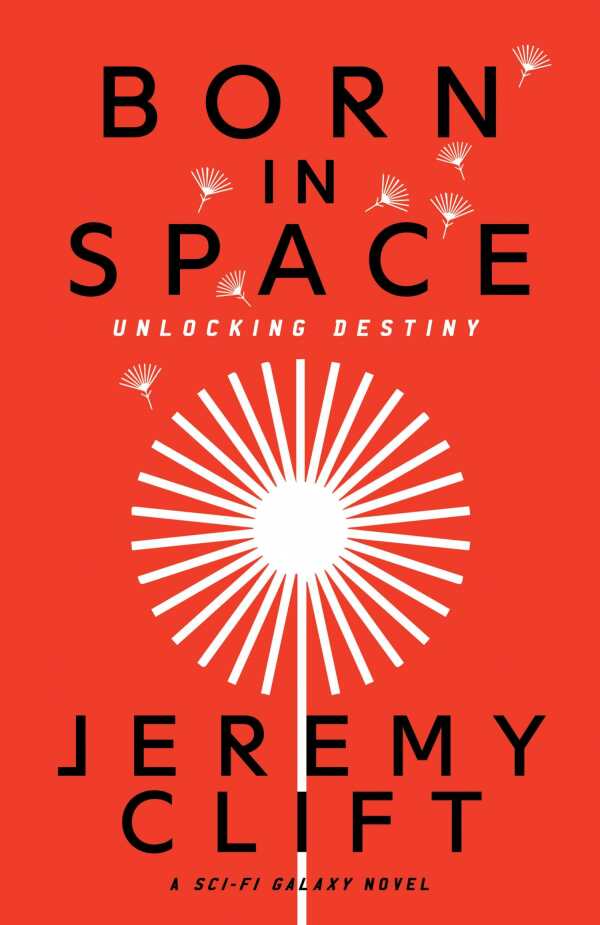
Born in Space
Unlocking Destiny
Born in Space is a lush science fiction allegory for the strength of a mother’s love and the unbreakable bonds of family.
Jeremy Clift’s epic science fiction novel Born in Space is about the human costs of space colonization and the lengths to which people will go for love or power.
The novel follows a sweeping ensemble cast, hinging upon Teagan and her family, who leave their home to live in low-Earth orbit. A prophecy is shared with Teagan before her departure; it informs several people’s paths throughout. And once Teagan leaves Earth, new problems arise: a villain, Howie, orchestrates a plan that involves forcing her to donate eggs. Howie’s plan is to raise children in artificial wombs and thus colonize space, as all organic pregnancies in space have failed. Later, Teagan falls from Howie’s graces when she sneaks into the room where the children are raised to hold them—compelled by the singular goal of seeing her children, to whom she is denied access.
In this allegory for the strength of a mother’s love and the unbreakable bonds of family, the worldbuilding is lush. It includes international conflicts and disputes in space, in low-Earth orbit, on the moon, and on asteroids. Networks of spacefaring supply and demand are implied too, extrapolating on contemporary relations between nations.
Geopolitical conflicts loom large, wrought upon the vast stage of space: the Chinese government and other nation-states have vested interests, investments, and settlements among the stars. Espionage, subterfuge, and double agents lie beneath the story, adding to its tension. However, there’s imbalance among the book’s details: while striking spiritual and philosophical symbols run throughout, including that of the octopus, their pervasiveness comes at the expense of other elements—including details about the mysteries that Teagan and her family encounter on the moon, which are glossed over.
The plot is intricate, switching among a multiplicity of perspectives to deliver a panoramic view of its situations. But while most people are easy to distinguish from one another, and while many complement or foil defining aspects of other people, Howie’s development is too stereotypical. He’s charismatic, underhanded, and manipulative, going so far as to take Teagan as his lover. And in the course of the book’s action, the characters use stilted language, impeding several pivotal, high-stakes moments. During a chase scene, for example, Teagan’s mother shouts, “That twisted bastard must not escape.” Other awkward conversations hinge upon espionage, rescue missions, and the planning of nefarious acts.
The novel is slow to start and works toward a breathless conclusion. The plotline related to the prophecy is handled in vague terms; it does little to propel the narrative forward, instead laying the groundwork for a sequel. And the book’s ending is too rushed through; it comes sans a sense of closure or catharsis for Teagan’s profound suffering, loneliness, and forced isolation.
In the rich, futuristic science fiction novel Born in Space, space-faring people contemplate the meaning of human nature as they strive toward the stars.
Reviewed by
Caitlin Cacciatore
Disclosure: This article is not an endorsement, but a review. The publisher of this book provided free copies of the book and paid a small fee to have their book reviewed by a professional reviewer. Foreword Reviews and Clarion Reviews make no guarantee that the publisher will receive a positive review. Foreword Magazine, Inc. is disclosing this in accordance with the Federal Trade Commission’s 16 CFR, Part 255.
